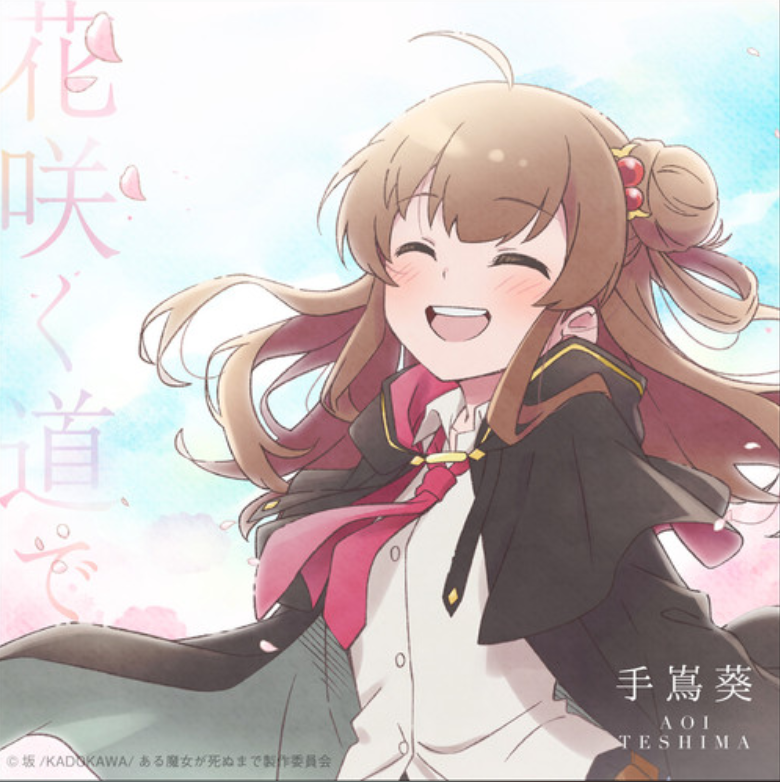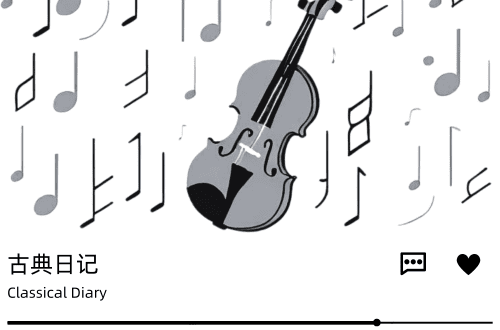HIFI Diary: TANCHJIM LUNA Portable DAC/Amp Sound Quality Review
I. Preface
Thanks to the group member for sending this for review! Without a doubt, among all the ACG (Anime, Comics, Games) Hi-Fi devices BLOG owner has reviewed, this is the most exquisitely designed, and its app’s UI design is also quite delightful. Regardless of the sound quality for now, this smooth “ACG combo” (premium pricing) is something Moondrop (水月雨) could learn a thing or two from =W=. With ACG Hi-Fi gaining more traction, let BLOG owner find out the actual performance level of this not-so-cheap little dongle.
II. Preparation for the Review
The dongle for this review is Angel Jimmy’s (天使吉米) LUNA. The test headphones are BLOG owner’s own flagship Yincao Tech (音巢科技) XY0 (4.4mm). The playback device is a Xiaomi 13 Ultra with its original cable, and the playback software is QQ Music.
III. Assessment Tracks/Scoring Method
The track selection is based on the blogger’s usual listening preferences, which are about 50% ACG music, 30% modern music, and 20% classical music. Therefore, the selection leans heavily towards Japanese music. The scoring criteria are derived from a simplified version of Liu Hansheng’s “Twenty Essentials for Audio,” with a maximum score of 10, though generally, the highest score given is 9. A score of 8 indicates a clear advantage in the scoring category, 7 signifies excellence, 6 means it can be normally appreciated, 5 means it can be normally listened to, and scores below 5 are not commented on. For a more detailed evaluation plan, please refer to here. Unfortunately, for this review, BLOG owner couldn’t find a comparable product for A/B testing. The various dongles BLOG owner has on hand are quite different from LUNA, so this will be a subjective scoring of the LUNA itself.
IV. Testing Begins
| Item | Lotoo PAW Gold Touch | LBZ-04 | LBZ-03 | MUB1 | DS1 | LUNA | Moondrop Dawn |
|---|---|---|---|---|---|---|---|
| Integrity | 8.5/10 | 7/10 | 8/10 | 7/10 | 6.5/10 | 6.5/10 | 6.5/10 |
| High frequency | 8/10 | 6.5/10 | 7/10 | 7/10 | 5.5/10 | 5.5/10 | 5/10 |
| Medium frequency | 8/10 | 6.5/10 | 7.5/10 | 6.5/10 | 6/10 | 6/10 | 5.5/10 |
| Low frequency | 7.5/10 | 6.5/10 | 7/10 | 6.5/10 | 6.5/10 | 5.5/10 | 6/10 |
| Analysis, separation | 8/10 | 7/10 | 7/10 | 7/10 | 7/10 | 5.5/10 | 5.5/10 |
| Sound field, density | 8/10 | 6/10 | 7/10 | 7/10 | 6/10 | 5.5/10 | 5/10 |
| Drive, dynamic | 8/10 | 6.5/10 | 7/10 | 7/10 | 7/10 | 5/10 | 5.5/10 |
| Total score | 8/10 | 6.6/10 | 7.2/10 | 6.9/10 | 6.4/10 | 5.6/10 | 5.6/10 |
1. Song: 愛の詩 (Ai no Uta – Song of Love), Singer: 末廣優里 (Suehiro Yuri)

Companionship is the longest confession of love. The Legend of Heroes – Trails series (英雄传说-轨迹系列) is the JRPG series that BLOG owner has spent the most time with, and quite possibly the longest-running game series with a single continuous worldview in history, spanning exactly 20 years to date. Although the series has reached a point where nostalgia is a major reason to keep playing, it’s undeniable that through the lens of time, certain beautiful moments are forever etched in the heart. Just like this ending theme (ED) from the ninth installment of the series, it always stirs up ripples of emotion whenever it plays.
The creative concept behind 《愛の詩》(Ai no Uta) is remarkably pure. It condenses and elevates the core emotions accumulated throughout the series’ history, expressing them in the most direct way. The opening features two consecutive, heartfelt confessions: “ただ愛してる” (Tada Aishiteru – I Just Love You),” setting the tone for the entire song. The character for ‘love’ (愛 – ai) appears 22 times throughout the song, delivering a pure and unadorned emotional impact. No complex words, no obscure metaphors, no beating around the bush; it’s simply “I just love you.” This almost raw honesty undoubtedly shortens the distance between the listener and the singer. And the unique persistence and sorrow in singer 末廣優里 (Suehiro Yuri)’s voice, as the expressions of love accumulate, intensify the emotions within the song.
《愛の詩》(Ai no Uta) first appeared to conclude the 6-year story arc of the Trails of Cold Steel (闪之轨迹) series. The protagonist of that arc, through self-sacrifice, created a deeply tragic yet heroic ending, which was well-received by many players. The repeated lyric “Let’s walk through life together” (让我们一起走过人生的旅途) perfectly fits the story of this character, who accompanied players for many years, finally reaching his fated end. This cross-lingual lyric design not only enriches the song’s expressive form but also seeks broader resonance by tapping into the subconscious cultural elements across different civilizations.
Now, let’s talk about the LUNA. First, it must be said that LUNA’s value definitely doesn’t solely lie in its sound quality; after all, the ACG design also costs money. Overall, compared to other dongles using the same CS43131/CS43198 chips, LUNA focuses more on the ‘flavor’ or ‘charm’ of the sound. To put it bluntly (low EQ), it’s warm and a bit muddy; to put it nicely (high EQ), it’s ‘non-fatiguing’ or ‘easy to listen to for long periods’. Although BLOG owner no longer has the Moondrop Dawn (水月雨破晓) dongle on hand, from memory, they should be at a similar level. However, LUNA’s vocals are slightly more prominent. 末廣優里 (Suehiro Yuri)’s voice, through the LUNA, is honestly not bad to listen to. Although it lacks a bit of detail, the emotion the singer wants to convey is still well-communicated in this warmer atmosphere. Slow songs rich in emotion like this are right in LUNA’s comfort zone. Conversely, if you’re listening to electronic/rock songs like “Red fraction” by MELL, it’s a disaster for LUNA. LUNA’s muddy bass and slowish reverb directly lead to dynamics so poor they’re hard to bear.
2. Song: 花咲く道で (Hana Saku Michi de – On the Road Where Flowers Bloom), Singer: 手嶌葵 (Teshima Aoi), Album: 花咲く道で (Hana Saku Michi de)

One of BLOG owner’s current favorite songs from the 2025 new anime season is 《花咲く道で》(Hana Saku Michi de), sung by the nationally beloved Japanese singer 手嶌葵 (Teshima Aoi). She previously collaborated with Gorō Miyazaki, singing the theme song for “From Up on Poppy Hill” (虞美人盛开的山坡 – Kokurikozaka Kara), which is a golden oldie treasured by BLOG owner to this day. Returning to this ED song for “Until the Witch Disappears” (直至魔女消逝 – Majo ga Kieru Made), this is an excellent piece that is lyrical but goes beyond mere lyricism. Firstly, Teshima Aoi’s highly recognizable voice, full of storytelling quality, perfectly conveys the tenderness, hope, and faint sorrow in the lyrics. Through breath control and emotional investment, the singer deeply moves listeners without needing to be overly sentimental.
Secondly, the lyrical descriptions build layer upon layer, combining scenic imagery with reflections on life. The opening line, “丘の向こうで雲雀が歌う 輝く空は未来の方へ続いてる” (Oka no mukō de hibari ga utau kagayaku sora wa mirai no hō e tsuzuiteru – Beyond the hill, a skylark sings; the shining sky extends towards the future),” with its melodious tune, immediately draws listeners into a state of long reflection and distant longing, creating a dreamlike scene, as if reaching for something unattainable, and sets the fundamental tone for the song.
Entering the chorus, “もう朝はいらないと 泣いたことはありますか?” (Mō asa wa iranai to naita koto wa arimasu ka? – Have you ever cried, saying you don’t need the dawn anymore?)” infuses the lyrics with deep pain and despair, making them heavier. In the lyrics and melody, the feeling of helplessness and confusion when facing the loss of a loved one is vividly portrayed. And finally, “かなしみはずっと胸に残るけど やさしく色が褪せて いつか古びた布のように なつかしく” (Kanashimi wa zutto mune ni nokoru kedo yasashiku iro ga asete itsuka furubita nuno no yō ni natsukashiku – Though sadness remains in the heart, its color gently fades, eventually becoming nostalgic like an old, faded cloth),” suggests that time heals wounds, transforming sorrow into nostalgia. This both answers the earlier question and alludes to the singer’s inner strength and gentleness.
Here, I must mention a rather interesting design choice. As mentioned earlier, from the very first line, the entire song carries a strong sense of ‘reminiscence,’ as if recalling a story from long ago. This creative approach naturally creates a sense of detachment between the singer and the listener. Simply put, the song prioritizes atmosphere creation, which is consistent with Yuki Kajiura (梶浦由记)’s usual compositional style. This ‘detachment’ design is precisely to create a broader space for emotional resonance. It allows listeners not to directly identify with a specific character, but rather, as observers, to reflect on their own past experiences, find connections with the lyrics, and spontaneously evoke emotional resonance.
As the ED for “Until the Witch Disappears” (直至魔女消逝), this design is particularly clever—it’s not a direct continuation of every climax in the plot, but rather provides a quiet space (during the ED) for the audience to reflect and contemplate. It allows themes of loss, memory, and hope to slowly settle within the song, ultimately transforming into a gentle yet resilient strength. This elevates the song beyond mere emotional catharsis, perfectly aligning with the original story, and even features a design specifically tailored for the ED sequence, further enhancing the song’s impact.
Let’s talk about LUNA’s performance on this track. As a lyrical slow song, it should be very suitable for LUNA. However, with Yuki Kajiura’s arrangement, it’s naturally not going to be simple. Towards the end of the song, numerous instruments are frequently used to fill the track – harp, violin, piano, and bass drum appear successively, making LUNA’s performance feel strained. Firstly, the most obvious issue is too many elements; LUNA’s separation capabilities can’t keep up, and background elements become muddled together. Secondly, the rather mediocre low-frequency quality not only results in unsatisfactory instrumental timbre but also somewhat affects the clarity of the mid-frequency vocals. This song is still within LUNA’s comfort zone, but its subpar sound quality still somewhat detracts from the feelings the song originally intended to convey. Overall, while this song is still within LUNA’s comfort zone, its subpar sound quality somewhat detracts from the feelings the song originally intended to convey, which BLOG owner finds particularly regrettable.
V. Summary
Actually, there isn’t much to say. The music review part of this assessment was much harder to write than the sound quality evaluation. LUNA’s sound quality can pretty much be judged at first listen. It’s just that BLOG owner has been too busy lately, so this review was delayed (鸽了 – gē le, internet slang for procrastinated/put off) for quite a while before completion. To be fair, given its limited technical capabilities, LUNA has done its best to at least not sound bad. However, for a Hi-Fi product costing nearly a thousand RMB (TMD – damn), even though its product appearance and UI design are outstanding, perhaps even in a league of their own, for it to be presented with this level of sound quality, perhaps one really has to say, “ACG fans’ money is so easy to grab.”




